 W
WThe Virginia Ratifying Convention was a convention of 168 delegates from Virginia who met in 1788 to ratify or reject the United States Constitution, which had been drafted at the Philadelphia Convention the previous year.
 W
WJohn Blair Jr. was an American politician, Founding Father and jurist.
 W
WTheodorick Bland, also known as Theodorick Bland, Jr., was a physician, soldier, and statesman from Prince George County, Virginia. He became a major figure in the formation of the new United States government, representing Virginia in both the Continental Congress and the United States House of Representatives.
 W
WNathaniel Burwell was an American politician and plantation owner. Perhaps the most distinguished of five men of that name to serve in the Virginia General Assembly before the American Civil War, this Nathaniel Burwell won election to the Virginia House of Delegates as well as the Virginia Ratifying Convention, and also served as the county lieutenant for the James City County militia.
 W
WWilliam O. Callis was the son of William Harry Callis and Mary Jane Cosby. He was a childhood friend of Presidents James Madison and James Monroe, was with Washington at Yorktown, and was known to Lafayette, Thomas Jefferson, and Benedict Arnold.
 W
WPaul Carrington was a Virginia lawyer, judge and politician. He served in the House of Burgesses before being elected a Justice of the Virginia Court of Appeals. He was a delegate to the Virginia Ratifying Convention in 1788, and cast his vote for ratification of the United States Constitution.
 W
WGreen Clay was a United States businessman, planter, and politician from Kentucky; he served in the American Revolutionary War and was commissioned as a general to lead the Kentucky militia in the War of 1812. He was believed to be one of the wealthiest men of the state, owning tens of thousands of acres of land, many slaves, several distilleries, a tavern, and ferries.
 W
WJohn Hartwell Cocke II was an American military officer, planter and businessman. During the War of 1812, Cocke was a brigadier general of the Virginia militia.
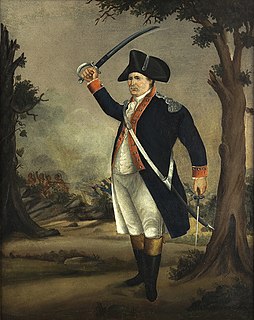 W
WWilliam Darke was an American soldier. In 1740, he moved from Philadelphia, Pennsylvania, to Virginia. He was in Edward Braddock's army in the defeat in 1755 and was made a captain at the beginning of the American Revolutionary War. He was made prisoner at the Battle of Germantown and was commanding colonel of the Hampshire and Berkeley regiments at the capture of Cornwallis. Darke was often a member of the Virginia legislature and, during the convention of 1788, voted for the Federal Constitution.
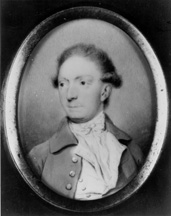 W
WWilliam Grayson was a soldier, lawyer, and statesman from Virginia. He was one of the first two U.S. Senators from Virginia, and belonged to the Anti-Federalist faction; he was also the first member of the United States Congress to die while holding office.
 W
WBenjamin Harrison V was an American planter and merchant, and served as a legislator in colonial Virginia, following a precedent of public service established by his namesakes. He became a Founding Father of the United States and also was elected as Virginia's governor (1781–1784).
 W
WPatrick Henry was an American attorney, planter, politician, and orator best known for his declaration to the Second Virginia Convention (1775): "Give me liberty, or give me death!" A Founding Father, he served as the first and sixth post-colonial Governor of Virginia, from 1776 to 1779 and from 1784 to 1786.
 W
WMajor-General Henry Lee III was an early American Patriot and politician. He served as the ninth Governor of Virginia and as the Virginia Representative to the United States Congress. Lee's service during the American Revolution as a cavalry officer in the Continental Army earned him the nickname by which he is best known, "Light-Horse Harry". He was the father of Robert E. Lee, commander of the Confederate armies in the American Civil War.
 W
WJames Madison was an American statesman, diplomat, expansionist, philosopher, and Founding Father who served as the fourth president of the United States from 1809 to 1817. He is hailed as the "Father of the Constitution" for his pivotal role in drafting and promoting the Constitution of the United States and the United States Bill of Rights. He co-wrote The Federalist Papers, co-founded the Democratic-Republican Party, and served as the fifth United States Secretary of State from 1801 to 1809.
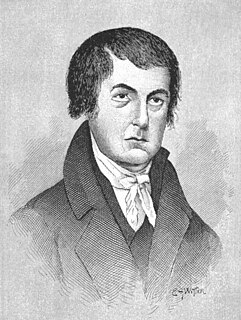 W
WHumphrey Marshall was a politician from the U.S. states of Virginia and Kentucky. He served in the state legislatures of both states and represented Kentucky in the United States Senate from 1795 to 1801. He was a member of the Marshall political family which included his cousins Chief Justice of the United States John Marshall, federal judge James Markham Marshall, and noted educator Louis Marshall. All the prominent members of this family were Federalists. Marshall was also the father of Congressman Thomas Alexander Marshall and the grandfather of Congressman and Confederate General Humphrey Marshall.
 W
WJohn Marshall was an American politician and lawyer who served as the fourth Chief Justice of the United States from 1801 to 1835. Marshall remains the longest-serving chief justice and fourth-longest serving justice in Supreme Court history, and he is widely regarded as one of the most influential justices to ever sit on the Supreme Court. Prior to joining the Supreme Court, Marshall served as the United States Secretary of State under President John Adams.
 W
WGeorge Mason IV was an American planter, politician and delegate to the U.S. Constitutional Convention of 1787, one of three delegates who refused to sign the Constitution. His writings, including substantial portions of the Fairfax Resolves of 1774, the Virginia Declaration of Rights of 1776, and his Objections to this Constitution of Government (1787) opposing ratification, have exercised a significant influence on American political thought and events. The Virginia Declaration of Rights, which Mason principally authored, served as a basis for the United States Bill of Rights, a document of which he has been deemed a father.
 W
WStevens Thomson Mason was a Colonel in the Continental Army during the Revolutionary War, a member of the Virginia state legislature and a Republican U.S. Senator from Virginia (1794–1803).
 W
WJames Monroe was an American statesman, lawyer, diplomat and Founding Father who served as the fifth president of the United States from 1817 to 1825. A member of the Democratic-Republican Party, Monroe was the last president of the Virginia dynasty; his presidency coincided with the Era of Good Feelings. He is perhaps best known for issuing the Monroe Doctrine, a policy of opposing European colonialism in the Americas. He also served as the governor of Virginia, a member of the United States Senate, the U.S. ambassador to France and Britain, the seventh Secretary of State, and the eighth Secretary of War.
 W
WEdmund Pendleton was a Virginia planter, politician, lawyer and judge. He served in the Virginia legislature before and during the American Revolutionary War, rising to the position of Speaker. Pendleton attended the First Continental Congress as one of Virginia's delegates alongside George Washington and Patrick Henry, and led the conventions both wherein Virginia declared independence (1776) and adopted the U.S. Constitution (1788).
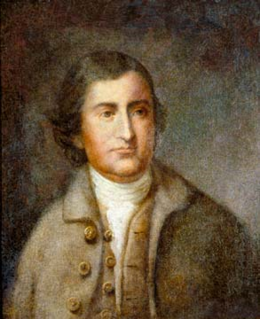 W
WEdmund Jennings Randolph was an American attorney and politician. He was the 7th Governor of Virginia, and, as a delegate from Virginia, he attended the Constitutional Convention and helped to create a national constitution. He was the 1st United States Attorney General and subsequently the 2nd Secretary of State during George Washington's presidency.
 W
WMeriwether Smith was an American planter from Essex County, Virginia.
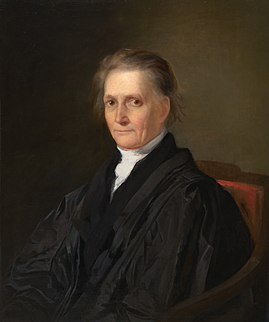 W
WBushrod Washington was an attorney and politician who served as Associate Justice of the Supreme Court of the United States from 1798 to 1829. On the Supreme Court, he was a staunch ally of Chief Justice John Marshall.
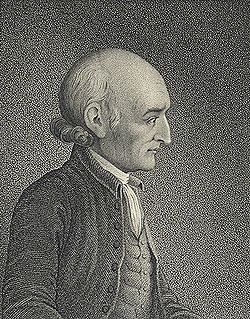 W
WGeorge Wythe was the first American law professor, a noted classics scholar, and a Virginia judge. The first of the seven Virginia signatories of the United States Declaration of Independence, Wythe served as one of Virginia's representatives to the Continental Congress and the Philadelphia Convention. Wythe taught and was a mentor to Thomas Jefferson, John Marshall, Henry Clay and other men who became American leaders.
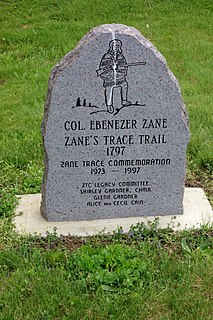 W
WEbenezer Zane was an American pioneer, road builder and land speculator. Born in what is now Moorefield, West Virginia, Zane established the settlement known as Fort Henry in Wheeling, Virginia, on the Ohio River. Zane is also famous for blazing the trail known as Zane's Trace. He died of jaundice in 1811.